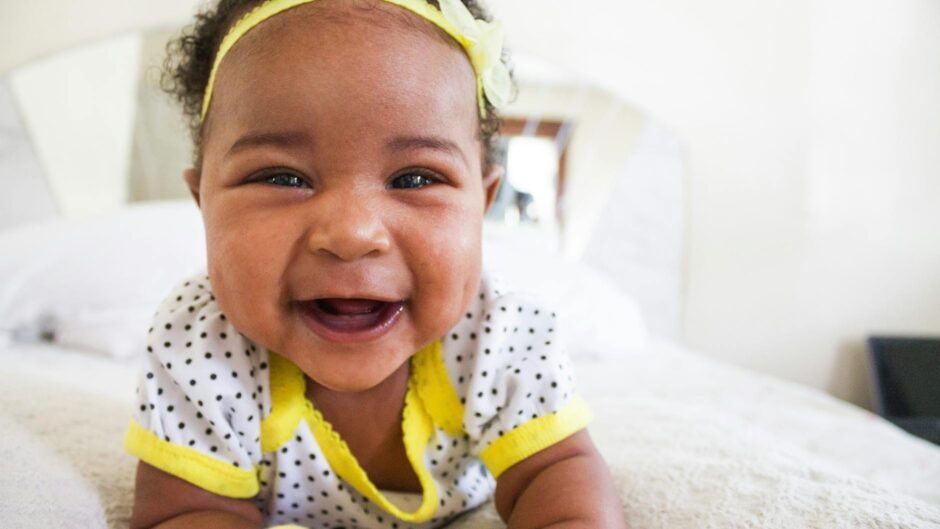Slate asks “Why Do Babies Smile?”
But research from the last couple of decades shows there’s more to it. Smiling typically develops around six to eight weeks, a time when a baby spends her days gazing at faces, and when her vision widens to take in the whole face, not just the eyes. It’s unclear if there’s any emotion embedded in these very early smiles or what they mean, if anything, to the infant. Daniel Messinger, a professor of psychology at the University of Miami, suspects that these first smiles teach infants the positive associations attached to a smile that we adults already feel. Learning to smile—and learning what’s meant by a smile—is a process, much like learning how to walk. “I take smiling to be a social signal,” Messinger says. “I really think that babies are learning what joy is by sharing it with someone else.” In other words, smiling might not be so much an expression of a preexisting state as a path we take to get to that state.
Take that, Platonic ideas of cuteness and happiness. Dwight Shrute: “I never smile if I can help it. Showing one’s teeth is a submission signal in primates. When someone smiles at me, all I see is a chimpanzee begging for its life.”





